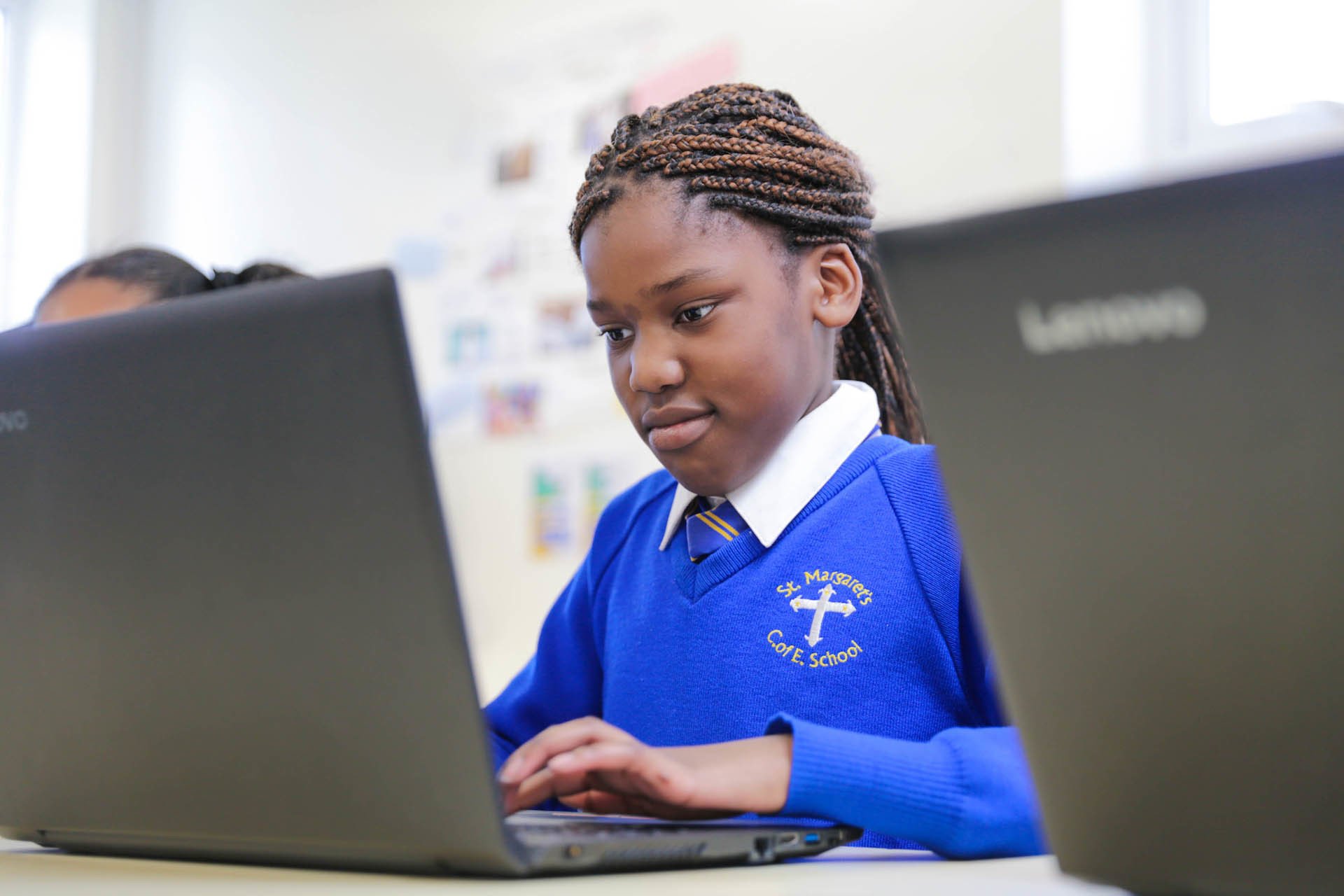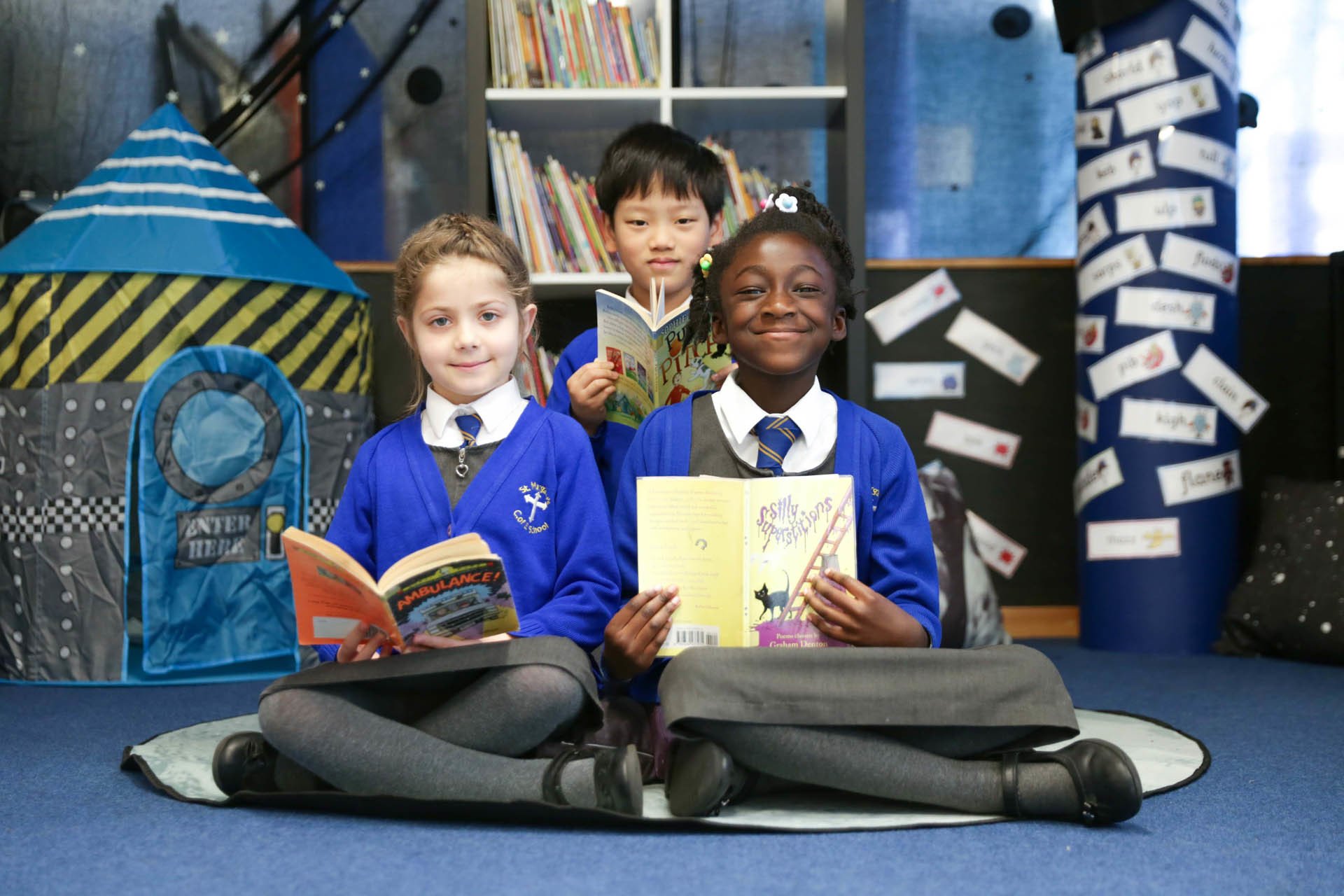

British Values
As directed under new guidance, September 2014, we at the Genesis Education Trust and St Margaret’s take opportunities to actively promote British Values, defined by the government as the following:
• Democracy
• The rule of law
• Individual liberty
• Mutual respect
• Tolerance of those of different faiths and beliefs.
At St. Margaret’s, we teach a broad and balanced curriculum that teaches elements of democracy, civic responsibility, rules and laws, the monarchy, equality, values and virtues, environmental awareness and understanding of other faiths. Actively promoting British Values also refers to challenging pupils, staff or parents expressing opinions contrary to fundamental British Values.
At St. Margaret’s, values of tolerance and respect permeate all areas of school life. This creates a climate within which pupils feel safe and secure and facilitates the fulfilment of potential. Pupil voice plays an integral part in driving the school forward and school rules at different levels are seen as the foundation upon which this can be achieved. The following are a selection of activities that are evidence of our commitment to British values.
Democracy:
• We have an elected school council that meets fortnightly. The children discuss ways of improving the school and they make practical suggestion as how to do so.
• Children have the opportunity to have their voices heard through our School Council, Learning Council and pupil questionnaires.
• Children also vote democratically for their school council class representatives.
The Rule of Law:
• The importance of Laws, whether they be those that govern the class, the school, or the country, are consistently reinforced throughout regular school days, as well as when dealing with behaviour and through school assemblies.
• Pupils are taught the value and reasons behind laws, that they govern and protect us, the responsibilities that this involves and the consequences when laws are broken. Visits from authorities such as the Police; Fire Service; Road Safety etc. are regular parts of our calendar and help reinforce this message.
Individual Liberty:
• Within school, the children are actively encouraged to make choices, knowing that they are in a safe and supportive environment.
• As a school, we educate and provide boundaries for young pupils to make choices safely, through of provision of a safe environment and empowering education. Pupils are encouraged to know, understand and exercise their rights and personal freedoms and advise how to exercise these safely, for example through our E-Safety and PSHE lessons. Whether it is through choice of challenge, of how they record, of participation in our numerous extra-curricular clubs and opportunities, pupils are given the freedom to make choices.
Mutual Respect:
• Part of our school ethos and behaviour policy has revolved around our Core Christian Values such as ‘Respect’, and pupils have been part of discussions and assemblies related to what this means and how it is shown.
• Posters of our Christian Values around the school promote respect for others and this is reiterated through our classroom and learning rules, as well as our behaviour policy and assemblies.
• We actively promote respect for our environment and we have Year six monitors who help adults and children out in school and in the playground. We also have an active Science and Geography club who constantly track whether children are using the school environment respectfully. These teams meet every week in order to discuss ways of improving our local environment and tackle wider global issues.
Tolerance of those of Different Faiths and Beliefs:
• This is achieved through the enhancement of children’s’ understanding of their place in a culturally diverse society and by giving them opportunities to experience such diversity.
• Assemblies and discussions involving prejudices and prejudice-based bullying are followed and supported by learning in RE and PSHE.
• We use whole school and/ or class assemblies as a chance to introduce the children to a range of different celebrations and religious festivals e.g. Chinese New Year, Christmas, Easter, Diwali, Eid etc.
• Members of different faiths or religions are encouraged to share their knowledge to enhance learning within classes and the school. Each Year group will visit a place of worship at least once a year.
• At St. Margaret’s, we take part in annual Poppy Day commemorations where children have made or can purchase poppies and a minute’s silence is held in special assemblies for the school.
